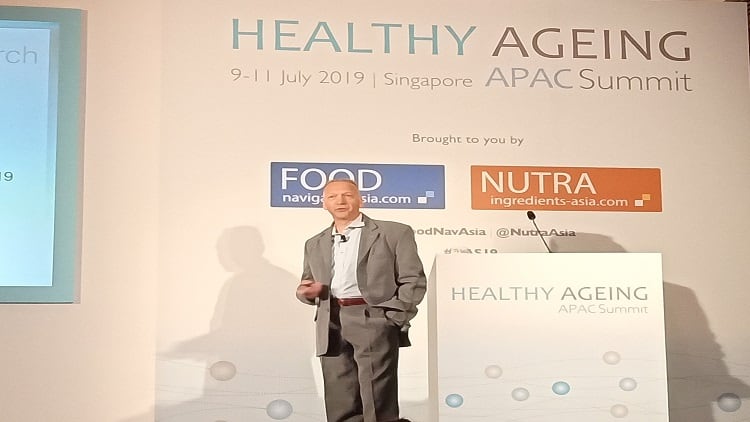By 2030, about 900m of the population in Asia will be over the age of 60.
Even so, there has been a lack of research and industry interest in elderly nutrition, with current research placing more weight in other areas, such as pharmacology.
Against this backdrop, Dr Jörg Hager, head of Metabolic Health Department at Nestlé Institute of Health Science, advocated the need to pump in more effort on elderly nutrition research when speaking at the second edition of Healthy Ageing APAC Summit organised by NutraIngredients-Asia and FoodNavigator-Asia.
The event, which took place in Hilton Hotel Singapore, kick started with an opening speech from guest-of-honour, minister Yusuke Arai, deputy chief of mission at the Embassy of Japan in Singapore.
In his presentation, Dr Hager pointed out that there was a lack of data on the micro nutrient status of the elderly.
Moreover, the micro nutrient status in the elderly population was far more complex than simply adding more nutrients into their diet, he added.
“It is not just about providing more as we age, but about providing the right amount at the right time as we age,” he said.
He hence suggested the need for large scale epidemiological and intervention studies in older subjects with detailed nutrition information and biological measurements.
Such undertaking would require support and collaboration from different parties, he stressed.
On the policy-making front, governments will need to make nutrition research a funding priority, he said.
“Today, it is very difficult to receive funding for this kind of research. If you are not doing pharmacological work or something mainstream, it is almost impossible to file for adequate funding,” he said.
In response to a question from the floor, he suggested that it would be the responsibility of policymakers, backed by industry and academic support, to set parameters on areas such as recommended dietary allowance (RDA) that are specific to the ageing population.
He said at present, most recommendations were based on averages extrapolated from the entire population.
Personalised nutrition
Besides the need for more research, Dr Hager also highlighted the importance of personalised nutrition for the elderly.
This would require the understanding of factors that affect an individual, such as genetics, environment, and diet.
“We really need to start thinking about how we do this for this population.In the end, the goal will be to do this on a personalised level, where we would give recommendations that people need based on their specific situations and specific biological make-up,” he said.
For example, one focus could be to find out more about the microbiome in the elderly population.
Food industry opportunities
As for industry, Dr Hager said its role was to provide holistic solutions in terms of product taste, texture, and composition for the elderly.
“The industry has only just started to realise that this population has different needs and we really need to think about it differently to the average population that we usually cater to.”




